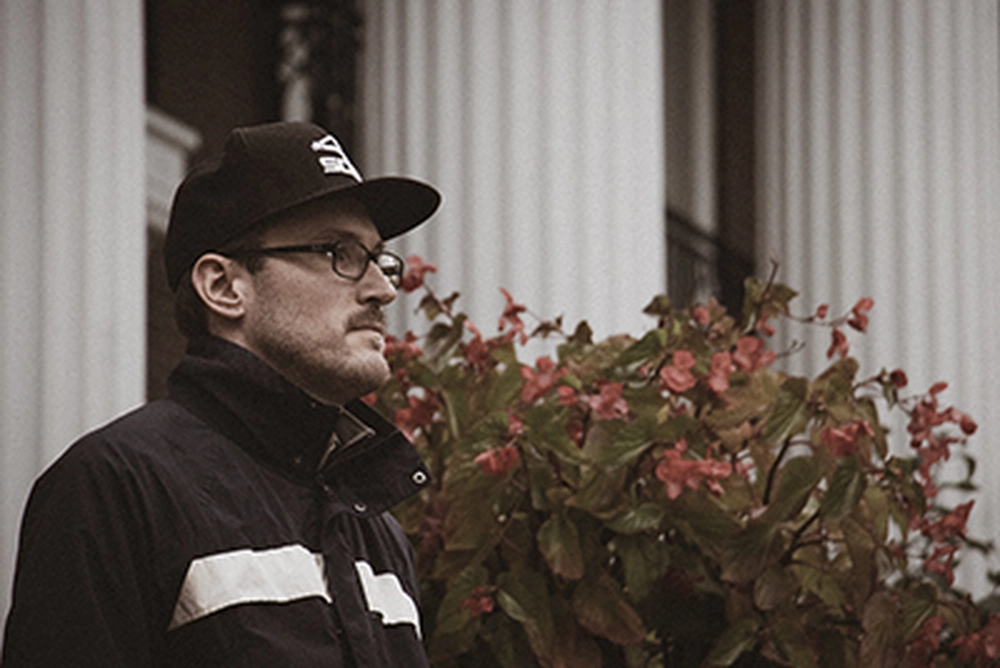
John Milas’ journey as a writer has been far from typical, but those unique experiences helped shape his gripping gothic horror novel about a mysterious abandoned building in Afghanistan and the soldiers who would never be the same after entering it.
A Champaign-Urbana native, Milas (BA, ’16, creative writing) attended Parkland College for one year before enlisting in the Marines. He served from 2008 to 2012, including a deployment to Afghanistan, but longed to return home and dreamed of attending the University of Illinois Urbana-Champaign.
“It was a really big deal for me. I really wanted to go back to school while I was in the Marines and opening that acceptance email was one of the happiest moments of my life,” he said.
On campus, Milas noticed the differences between himself and other students in his classes. While many were arriving in Champaign-Urbana from their hometowns, he was returning from a warzone. Many of his peers enrolled fresh out of high school, but his time at Parkland and military service meant that he was transferring in as a 23-year-old sophomore.
Although he had some prior college experience, he had not been in a classroom in four years, and readjusting to student life wasn’t always easy. But his circuitous path to the University of Illinois would also serve as an important source of inspiration.
He also credits the classes in the Creative Writing Program for making that transition at least somewhat easier.
“I was able to take classes and work on the online section of Ninth Letter, which was extremely helpful, not only to learn how a literary magazine works but also to improve my own reading and writing skills. That's not something that exists at every university,” he said.
Among the experiences in the English department that helped Milas develop as a writer, one award was particularly significant. The Junior Quinn Award recognizes achievement and potential in creative writing students and provides financial support for professional development.
“I was able to win the Junior Quinn Award from the English department in my junior year and go to a conference in Washington, which was really like turning a corner,” Milas said.
“Attending the conference gave me the opportunity to connect with other writers and to hear from industry professionals. It was the first time I really saw myself as part of the literary community.”
After graduating from Illinois, Milas enrolled in Purdue University’s MFA in Creative Writing program, where he would begin working on his debut novel, “The Militia House” (Macmillan, 2023).
The novel follows a group of U.S. Marines stationed in Afghanistan, who try to escape their mundane responsibilities by exploring an abandoned Soviet-era building that is rumored to be haunted. The novel has received much acclaim, being nominated for the Shirley Jackson Award and longlisted for the Center for Fiction’s First Novel Prize.
The idea behind “The Militia House” began taking shape during his time at Illinois, where he would draw inspiration from his own experiences.
“I think one of the things that pushed me to write it were undergraduate workshops,” he said.
“I took every workshop a billion times, it seems, and at least one piece per class would be about the military. My writing wasn’t always good, but being a student at Illinois brought me the conventional things you learn in a workshop, the craft-based things.”
One of the most important lessons he learned was that the writing process is not always a straight line from start to finish.
“I like to say that I just write sentences. I’ve learned to be patient with myself and give myself credit for being a bit directionless because it works for me,” he said.
“I think I’m more productive if I understand exactly the things I have more fun with, or what I’m compelled by. I like to just start writing and be patient with myself as I figure out where I’m going.”
Milas has come to appreciate revision, as that is when his writing really starts to take shape.
“I used to not like revision during workshops because I would have to do it on a deadline, but now — at least for me — revision is the most fun that I have. Drafting can take a lot of energy, but the best advice I have is to just start writing.”
To be a successful author, he stresses that reading is just as crucial to the writing process — especially for young writers.
“It’s okay to read things you like, and it’s also okay to read things you don’t like. Even if you don’t like a book or story at the end, you’ve still made progress and been productive because you learned more about yourself and your writing style,” he said.
“That’s something you should always value, even if the end result isn’t what you originally expected.”